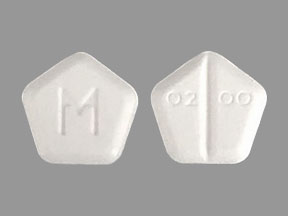Atropine / Difenoxin Side Effects
Medically reviewed by Drugs.com. Last updated on Feb 7, 2025.
Applies to atropine / difenoxin: oral tablet.
Precautions
Your doctor should check your progress at regular visits if you will be taking this medicine regularly for a long time.
Check with your doctor if your diarrhea does not stop after 2 days or if you develop a fever.
This medicine will add to the effects of alcohol and other CNS depressants (medicines that slow down the nervous system, possibly causing drowsiness). Some examples of CNS depressants are antihistamines or medicine for hay fever, other allergies, or colds; sedatives, tranquilizers, or sleeping medicine; prescription pain medicine or narcotics; barbiturates; medicine for seizures; muscle relaxants; or anesthetics, including some dental anesthetics. Check with your doctor before taking any of the above while you are taking this medicine.
If you think you or someone else in your home may have taken an overdose of this medicine, get emergency help at once. Taking an overdose of this medicine may lead to unconsciousness and possibly death. Symptoms of overdose include severe drowsiness; fast heartbeat; shortness of breath or troubled breathing; and unusual warmth, dryness, and flushing of skin.
Before having any kind of surgery (including dental surgery) or emergency treatment, tell the medical doctor or dentist in charge that you are using this medicine.
This medicine may cause some people to become dizzy, drowsy, or less alert than they are normally. Even if taken at bedtime, it may cause some people to feel drowsy or less alert on arising. Make sure you know how you react to this medicine before you drive, use machines, or do anything else that could be dangerous if you are dizzy or are not alert.
Other side effects
Some side effects of atropine / difenoxin may occur that usually do not need medical attention. These side effects may go away during treatment as your body adjusts to the medicine. Also, your health care professional may be able to tell you about ways to prevent or reduce some of these side effects.
Check with your health care professional if any of the following side effects continue or are bothersome or if you have any questions about them:
Less common or rare side effects
- blurred vision
- confusion
- difficult urination
- dizziness or lightheadedness
- drowsiness
- dryness of skin and mouth
- fever
- headache
- trouble in sleeping
- unusual tiredness or weakness
After you stop using this medicine, it may still produce some side effects that need attention. During this period of time, Check with your doctor immediately if you notice the following side effects:
- increased sweating
- muscle cramps
- nausea or vomiting
- shivering or trembling
- stomach cramps
Serious side effects
Along with its needed effects, atropine/difenoxin may cause some unwanted effects. Although not all of these side effects may occur, if they do occur they may need medical attention.
Check with your doctor immediately if any of the following side effects occur while taking atropine / difenoxin:
- Bloating
- constipation
- loss of appetite
- stomach pain (severe) with nausea and vomiting
Get emergency help immediately if any of the following symptoms of overdose occur while taking atropine / difenoxin:
- Blurred vision (continuing) or changes in near vision
- drowsiness (severe)
- dryness of mouth, nose, and throat (severe)
- fast heartbeat
- shortness of breath or troubled breathing (severe)
- unusual excitement, nervousness, restlessness, or irritability
- unusual warmth, dryness, and flushing of skin
See also:
For healthcare professionals
Applies to atropine / difenoxin: oral tablet.
Gastrointestinal adverse events
- Common (1% to 10%): Vomiting, dry mouth, epigastric distress
- Uncommon (0.1% to 1%): Constipation[Ref]
Nervous system
- Common (1% to 10%): Dizziness and light-headedness, drowsiness, headache
- Uncommon (0.1% to 1%): Tiredness, nervousness, insomnia, confusion[Ref]
Ocular
- Frequency not reported: Burning eyes, blurred vision[Ref]
References
1. (2006) "Product Information. Motofen (atropine-difenoxin)." Sebela Pharmaceuticals
More about atropine / difenoxin
- Check interactions
- Compare alternatives
- Reviews (3)
- Dosage information
- During pregnancy
- Drug class: antidiarrheals
Patient resources
Other brands
Professional resources
Other brands
Related treatment guides
Further information
Atropine/difenoxin side effects can vary depending on the individual. Always consult your healthcare provider to ensure the information displayed on this page applies to your personal circumstances.
Note: Medication side effects may be underreported. If you are experiencing side effects that are not listed, submit a report to the FDA by following this guide.

